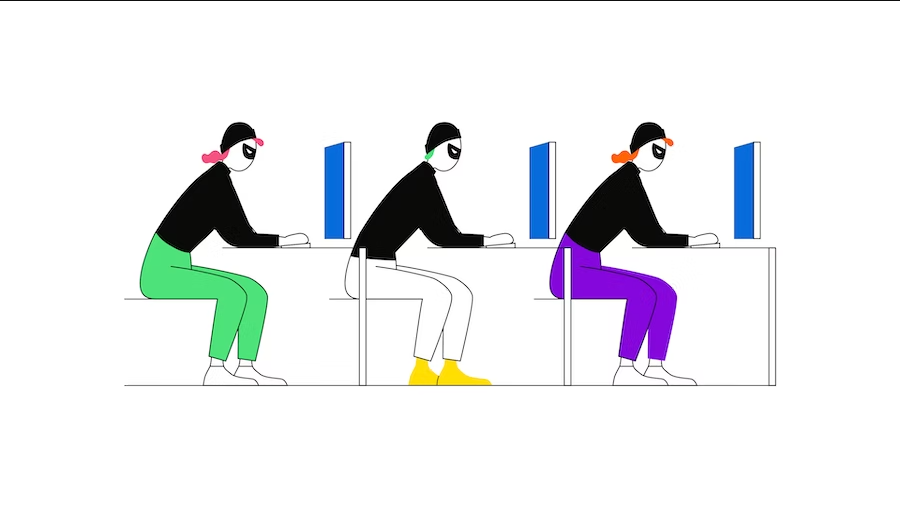Did you know that the German term “Börse” (meaning "stock exchange") dates back to ancient Rome and ancient Greece? Thus, the words "bursa" or "byrsa" meant something like "purse" as we know them now. For many centuries, investing money was primarily reserved for the wealthy, but in recent years, thanks to digitalisation and financial technology, both investing money and stock exchanges have become accessible to the general public.
How can I start investing money?
Nowadays, all securities are traded electronically via standardised trading systems and investing is available to all interested parties thanks to the internet and mobile phones. A great range of easy-to-understand articles about the basics of private finance, questions regarding money and investing is available online. Do you want to learn how to invest money in stocks? Or are you wondering which mutual funds could be of interest to you? Why are ETFs (exchange-traded funds) so popular? The answers to all these questions are no longer just for investing experts but for everyone who is interested in investing.
Among young investors in German-speaking countries in particular, trust in shares and the funds they made available for their personal investments increased during the lockdowns, along with rising stock market prices. Currently, around 36% of the German population holds shares, and this trend is pointing upwards. Declining returns on savings are also fuelling first-time investors to take the plunge. This is not just seen in Austria, Germany and Switzerland, but also worldwide. the German Share Index (DAX) is considered one of the most important indices - it also tracks the performance of the 40 largest and strongest German stocks by market capitalisation (market cap).
DAX - lead index of the Frankfurt Stock Exchange
The DAX is the leading index of the Frankfurt Stock Exchange and was established back in 1987. Until September 2021, the DAX tracked the share price performance of Germany's 30 largest stock corporations in terms of market cap and stock exchange turnover. Just recently, another ten companies from the MDAX (Mid Cap DAX, a member of the DAX index family) were added to Germany’s lead index. It now includes the top 40 companies representing more than 75% of the market capitalisation on Germany's stock market. The DAX also constitutes the underlying for other securities and numerous derivative financial products.
The companies included in the leading index are also referred to as "blue chip companies" and their shares as "blue chips" for short. These shares of the leading companies (“large caps”) are reputed for solid development and good credit ratings. Blue chip shares are named - quite simply - after the blue chips used in the Monte Carlo casino, which had the highest value.
Differences between performance indices and price indices
A special feature of the DAX is the way it is presented to the public. In a so-called price index, only the share prices of the companies included in the index (excluding dividends or other income) are taken into account in its presentation. In this case, it is the shares with the best price performance that influence the price of the index most strongly.
Development of the DAX, on the other hand, is presented to the public as a "performance index". This means that additional income such as dividends and the reinvestment of dividends are also included in the calculations; these are mathematically reinvested in the shares in the index at the time of their inflow. The reason for this is that looking at the total return is considered more significant for future developments than just analysing the price.
But if you do want to compare the DAX with other price indices such as the FTSE 100 or the S&P 500, you can also take a look at how the DAX is performing based just on price development.
How can I invest in the DAX?
Companies in the DAX 40 include, for example, Adidas, Allianz, BMW, Daimler, Delivery Hero, Deutsche Telekom, Infineon Technologies, Siemens, SAP, Volkswagen and many more.
Since the DAX (as an index) is a measure of the change in a variable value which tracks data such as prices, you cannot invest directly in the DAX. Instead, one option is to invest money in an ETF (exchange-traded fund) such as the Top 40 German Stocks.
The Top 40 German Stocks is an exchange-traded index fund (ETF) that tracks the performance of the DAX 40 as closely as possible. With Bitpanda Stocks*, you can invest in ETFs fractionally, such as the Top 40 German Stocks, from an amount of just €1, commission-free and with tight spreads. This is made possible by derivative contracts covered by the underlying stocks and ETFs.
*Bitpanda Stocks enables investing in fractional stocks. Fractional stocks in Europe are always enabled via a contract which replicates the underlying stock or ETF (financial instruments pursuant to section 1 item 7 lit. d WAG 2018). Investing in stocks and ETFs carries risks. For more details see the prospectus at bitpanda.com.
 Commodities* Invest in commodities 24/7
Commodities* Invest in commodities 24/7 BITCOIN What to know when you are just starting to invest
BITCOIN What to know when you are just starting to invest ASSET MANAGEMENT Your investment, your assets: Why your money is safe with Bitpanda
ASSET MANAGEMENT Your investment, your assets: Why your money is safe with Bitpanda COUNTDOWNBitcoin Halving Countdown 2024
COUNTDOWNBitcoin Halving Countdown 2024 ACADEMYWhat is the Bitcoin halving?
ACADEMYWhat is the Bitcoin halving?






